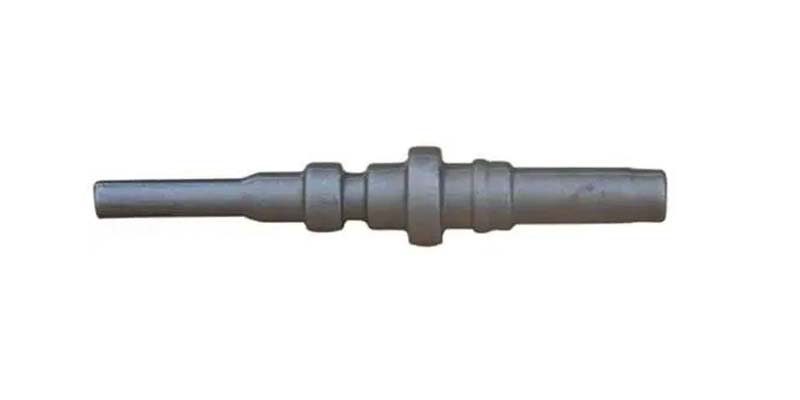- Contact Innally, Let you purchase forgings in China more favorable prices, products more assured!
- Hotline:+(86)15038323776 Email:innally@innally.com
Mechanical properties and material selection requirements for transmission shaft forgings
- Category: Stainless steel forging, Thermal forging
- |
- Date: 13/11/2023
The mechanical properties and material selection of transmission shaft forging are the key factors to ensure its quality and performance. In the production process, it is necessary to formulate a reasonable forging process and heat treatment scheme according to the use requirements and material characteristics to ensure that it has excellent mechanical properties and material characteristics.
Product Details
Transmission shaft forging is the key part of automobile transmission, its mechanical properties and material selection directly affect the performance and service life of the gearbox. This paper will introduce the mechanical properties of transmission shaft forgings and the requirements of material selection.
- Mechanical performance requirements of gearbox shaft forgings
Strength requirements: transmission shaft forgings need to have a high strength to withstand a variety of complex loads. In the production process, it is necessary to ensure its strength through reasonable forging process and material selection.
Toughness requirements: transmission shaft forgings need to have a certain toughness when bearing impact loads. In terms of material selection and heat treatment process, optimization is needed to improve its toughness.

Wear resistance requirements: transmission shaft forgings need to have good wear resistance to cope with the friction and wear of gear meshing. The wear resistance can be improved by selecting materials such as high carbon alloy steel and proper heat treatment process.
Fatigue resistance requirements: transmission shaft forgings need to have high fatigue resistance to deal with the fatigue damage of cyclic load. The fatigue resistance can be improved by optimizing material composition, reducing defects and stress concentration.
Second, transmission shaft forging material selection requirements
Good malleability: The transmission shaft forging material should have good malleability in order to achieve plastic deformation and forming during the forging process. Selecting a material with the right composition and structure can improve its malleability.
High strength and toughness: The selection of materials with high strength and toughness can ensure that the transmission shaft forgings can withstand complex loads and shocks during use.
Good wear resistance and fatigue resistance: The selection of materials with good wear resistance and fatigue resistance can improve the service life and reliability of transmission shaft forgings.
Good processing performance: The selection of materials suitable for mechanical processing can reduce production costs and improve production efficiency. At the same time, materials that are prone to cracks, inclusions and other defects should be avoided.
Economy: Under the premise of meeting the performance requirements, materials with appropriate prices and rich resources should be selected to reduce production costs and improve market competitiveness.
The mechanical properties and material selection of transmission shaft forging are the key factors to ensure its quality and performance. In the production process, it is necessary to formulate a reasonable forging process and heat treatment scheme according to the use requirements and material characteristics to ensure that it has excellent mechanical properties and material characteristics. At the same time, in the selection of materials, it is necessary to consider the availability of materials, economy and environmental protection and other factors in order to achieve the goal of sustainable development.
nannan
INNALLY mainly provides you with various types of cast and forged parts products. Welcome your inquiries! innally@innally.com
Related Products
Search
Forging center
- Steel forgings
- Aluminium alloy forging
- Titanium alloy forging
- Stainless steel forging
- Copper forging
- Automotive forgings
- Locomotive forging
- Bicycle forgings
- Motorcycle forging
- Rigging and fasteners
- Bearing forging
- Electric power fittings
- Marine forging
- Mechanical forgings for metalworking
- Mining machinery forgings
- Marine engineering forgings
- Construction machinery forgings
Popular product

© 2025. All Rights Reserved.






